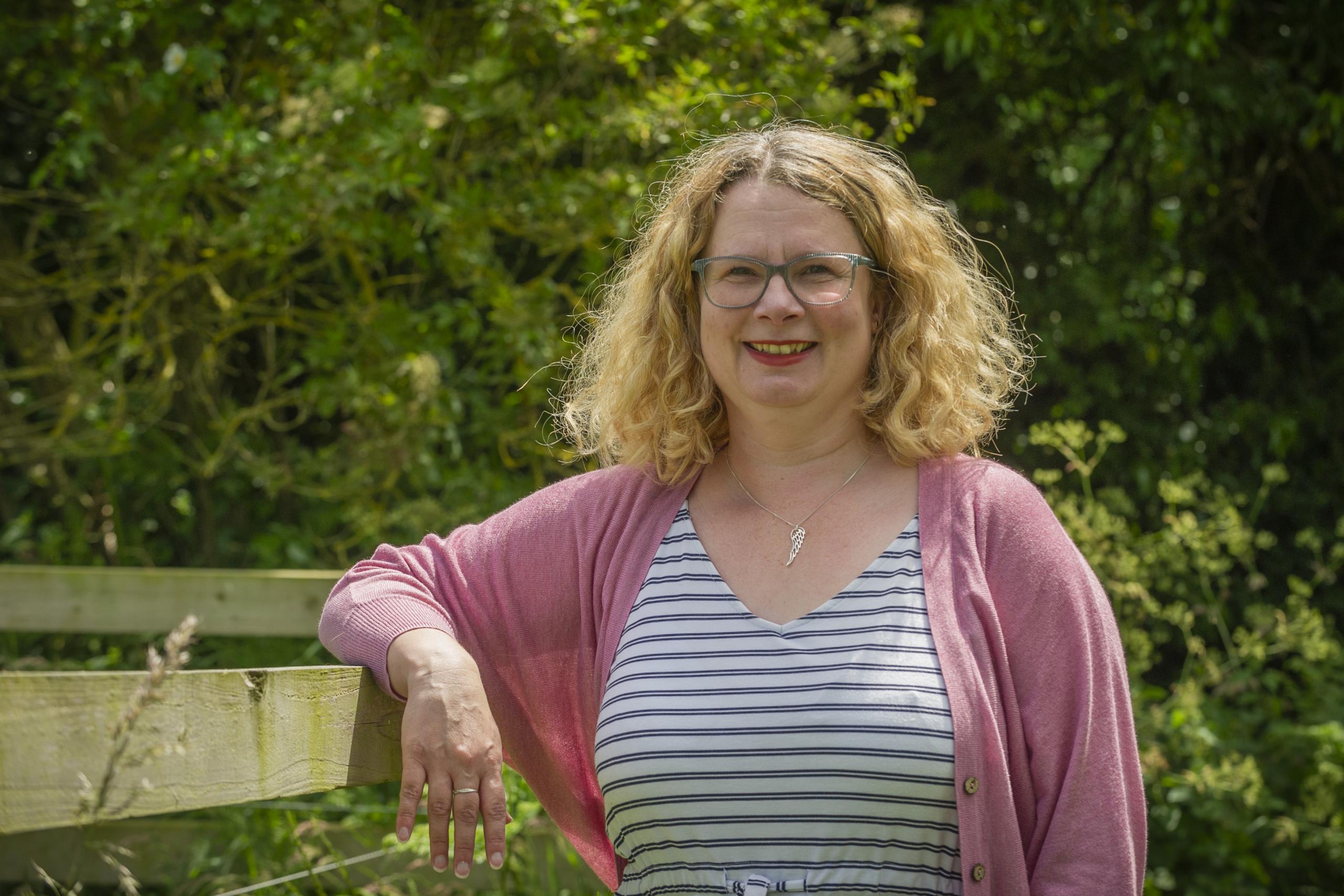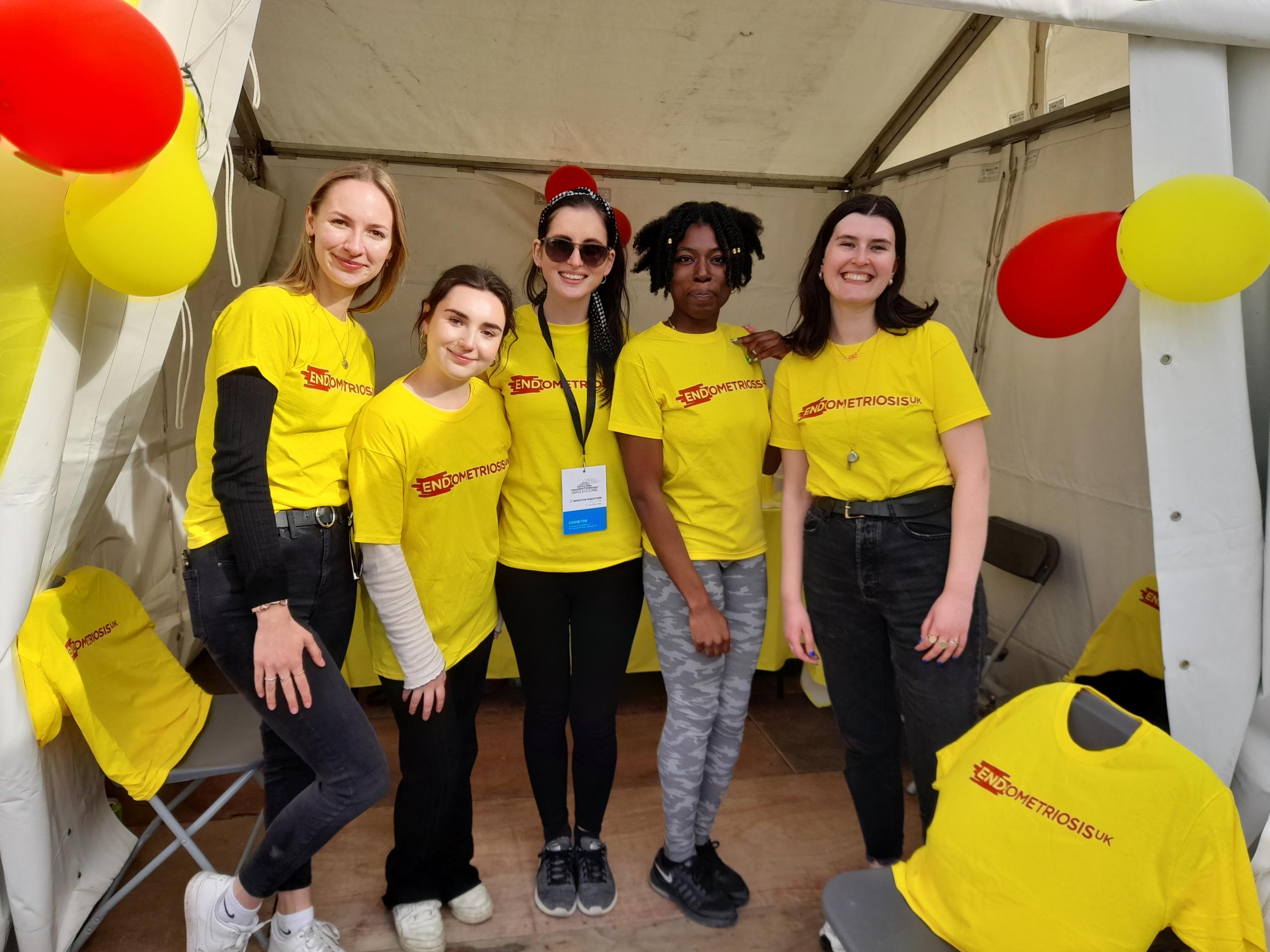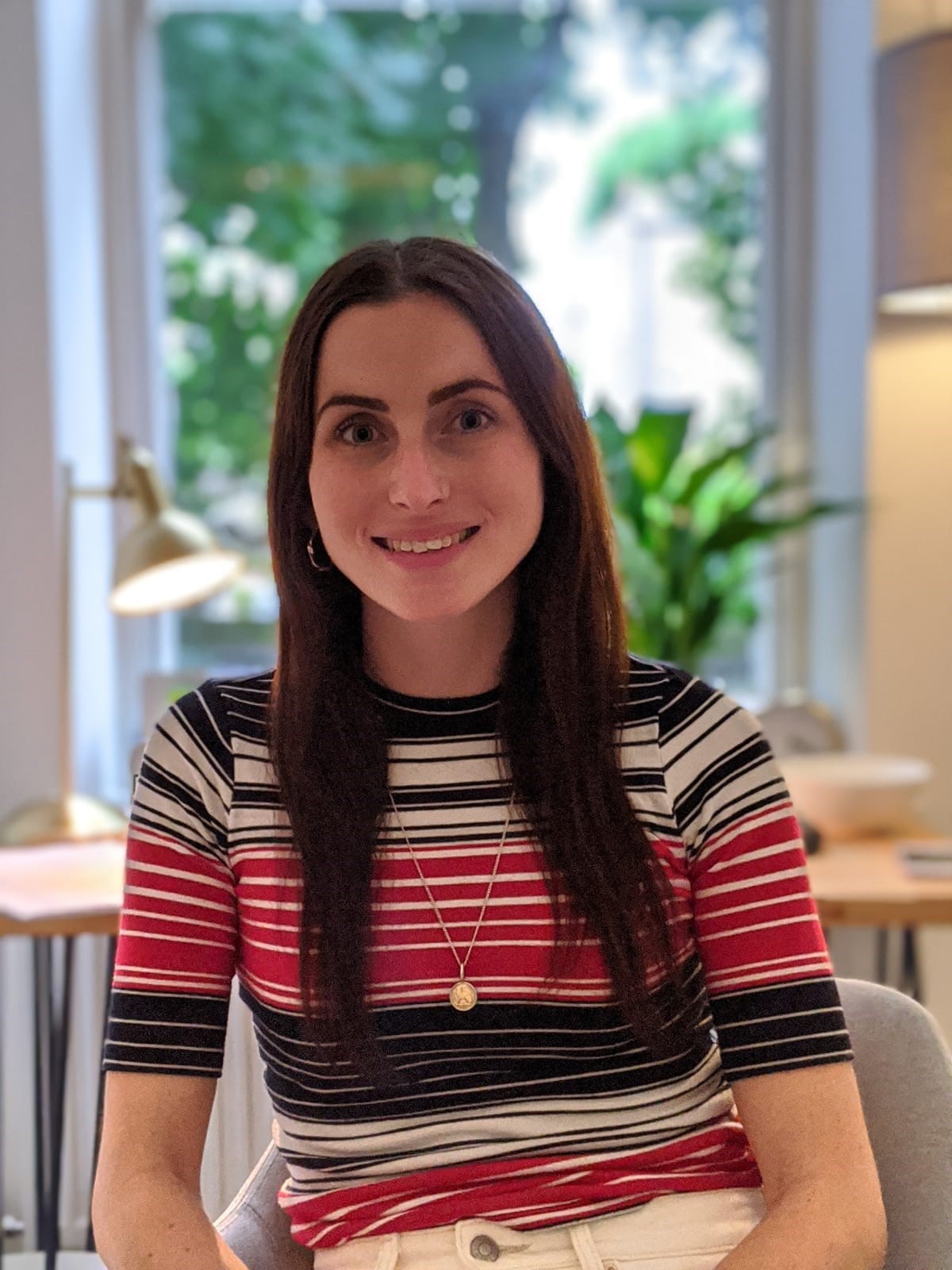CREATING CONNECTIONS
Kelly Owen, 44, from Norfolk shares her experience of living with endometriosis and how Endometriosis UK’s local support group has helped her through her journey
Kelly Owen spent most of her teens to late 30s being told the excruciating pain she felt during her periods was normal. “I started my periods when I was 13 years old, and I just remember being in extreme pain. I went to my GP who insisted it was normal and nothing to worry about, and I was put on the pill straight away.
“Over the next 20-odd years, whenever I experienced a change in my pain levels the doctors would just change my contraceptive. I would still get a lot of pain, felt constantly tired, would experience horrendous pain going to the toilet, and I would swell up so I looked pregnant, but I just put it down to normal painful periods because that’s what everyone was telling me.”
Kelly stayed on the contraceptive pill until 2017, when she decided to start trying for a baby with her husband Mark. “After a year of trying to conceive, unfortunately, we still hadn’t got pregnant. As I wasn’t taking any contraception, my symptoms had also got a lot worse. “I also developed what looked like a blood blister in my belly button, which was very painful. I went to see a nurse at my GP practice who advised me to pop it and gave me a sterile needle to do so. From that point onwards whenever I would bleed with a period – and I was bleeding three weeks out of four by this point – I would also bleed out of my belly button. It was absolutely terrifying and I had no idea what was happening to me.”
After several visits to her GP over the next few months, Kelly was eventually referred to a consultant gynaecologist who sent her for a laparoscopy (a type of keyhole surgery to see inside the abdomen). “I remember coming round from the surgery and the consultant coming to see me. He said he was sorry but I had stage 4 endometriosis and that my tubes were blocked, so I would never conceive naturally. I was heartbroken. All I ever wanted was to have a baby with someone I loved, so I was devastated. Unfortunately, as I was nearly 40 and my husband had two children already, I also found out that I wouldn’t be eligible for IVF on the NHS and we just couldn’t afford to finance it privately. It was heartbreaking.”
At Kelly’s follow-up appointment with her consultant, she was advised to have surgery to remove the endometriosis. “He said he would try to do keyhole surgery to remove it. However, the operation did not go well. My womb and bowel had become connected, I had adenomyosis of the uterus, which meant the endometriosis had grown into the muscle wall of the womb, and it had almost gone through my urethra so they would have to cut that all out and reconnect my bladder. The endometriosis was basically everywhere.”
Due to the extent of her endometriosis, Kelly was given the option of a hysterectomy. “It was an awful decision and I went back and forth over what to do. However, in the end I felt I had no quality of life, I couldn’t move, I was constantly taking pain medication, and I couldn’t see a way of having any kind of life if I didn’t have everything removed.”
In October 2019, Kelly had the hysterectomy. “While they were able to remove all the endometriosis, the cruel thing was I had the operation thinking it would be the end of it, but not long after I learnt the endometriosis had begun to grow in my scar tissue, which went right down from my belly button to my bikini line. I had also developed two hernias from the surgery, so would need more surgery, which I am still waiting for.
“Since the surgery, I have also had problems with my bladder, as I had to have a catheter for three weeks after the operation, and constantly feel like I need a wee. I also have problems with my bowels getting backed up and blocked because of all the medication I’m on. I have to take lots of different painkillers and have heat patches on my front and back every day, but I have still had times where I have had to go home from work because I’ve been doubled up in pain over the toilet thinking I’m going to be sick. I’m also constantly tired and it’s limited my ability to live my life how I want to.”
Fortunately, Kelly has been surrounded by support throughout. “I think facing something like this with a partner can either tear you apart or make you stronger. I’ve been so lucky, as Mark has been fantastic. If I get a bad flare-up he will be there with a hot water bottle and medication, and I feel so grateful to him and his kids – as well as my amazing family and friends – for their support.”
Kelly has also had the support of Endometriosis UK – and the local group she attends, which is run by the charity – to help her through the difficult times. “Shortly after my diagnosis I had an appointment with my endo nurse who directed me to the Endometriosis UK website. I spent hours reading all the information I could find and going through it with Mark, and I printed off pages and pages of stuff from the website. There was a guide to managing endometriosis at work, and one for partners about sex and personal relationships, and also a guide to different treatment options. It was so in depth and there was so much information available, which I found really useful.”
“I THINK FACING SOMETHING LIKE THIS WITH A PARTNER CAN EITHER TEAR YOU APART OR MAKE YOU STRONGER. I’VE BEEN SO LUCKY, AS MARK HAS BEEN FANTASTIC”
Kelly’s nurse also told her about the charity’s local endometriosis support group, which was being set up. “I went along to the very first meeting, right at the beginning when I felt like I’d been hit by a bus, and I have been attending the meetings ever since.
“We have health professionals attend to do talks sometimes, and I have met and made wonderful friendships with a lovely group of ladies all at different stages of their endometriosis journeys. We’re all different but we get on really well and listen to each other and discuss what’s helped us as individuals. Pre-Covid we had a meeting every month – we all loved those meetings because you got to speak to people who understood you. I know it’s a safe place for me to discuss how I’m feeling if I want to, or I can just listen. It really is my choice as to how much I want to get involved.
“MY JOURNEY IS FAR FROM OVER BUT I KNOW THAT THE CHARITY AND THE WONDERFUL WOMEN I HAVE MET THROUGH IT WILL HELP ME GET THROUGH THIS NEXT STAGE”
“I am so thankful for Endometriosis UK and the support I have found. My journey is far from over but I know that the charity and the wonderful women I have met through it will help me get through this next stage. I have a network of support and advice available whenever
I need it, no matter what, which is a truly amazing thing.”
THE CANDIS BIG GIVE PROJECT:
ENDOMETRIOSIS UK
ENDOMETRIOSIS SUPPORT APPEAL
TOTAL RAISED: £15,410
The money raised in the Candis Big Give will help to keep the charity’s support services running and enable it to be there for those impacted by endometriosis when they need it most.
Endometriosis is a disease where cells similar to the ones lining the womb are found elsewhere in the body, leading to chronic pelvic pain, painful periods, bowel and bladder problems, painful sex, fatigue and difficulty getting pregnant.
1.5 million people – or 1 in 10 women or those assigned female at birth – in the UK are currently living with endometriosis.
All the charity’s services – including its support groups, which are set up across the UK – are delivered by trained volunteers who have experience of the disease, so understand what those they support are going through.
Due to the Covid pandemic, there have been significant delays across NHS services, with gynaecology being one of the hardest hit in terms of the impact on waiting times. Consequently, there are lots of individuals across the UK with endometriosis in need of treatment and medical advice, as well as support with the emotional toll of having to wait for those answers. Since the start of the pandemic, the charity has aimed to scale up the support it can provide – whether that’s through hours on its helpline, providing support through its groups, or making sure those services also signpost to all the information the charity has available, to meet this need during this time.
Visit endometriosis-uk.org for more information.
WHAT ENDOMETRIOSIS UK MEANS TO ME
Rozie Corbett, head of income development at Endometriosis UK, tells us why the charity is so important
“I started volunteering for Endometriosis UK as a support group leader three years ago, as I have personal experience of endometriosis so was keen to get involved.
I co-led a support group in London, which involved organising and leading meetings that were essentially a safe space for those who were experiencing symptoms of endometriosis and living with the disease, as well as their loved ones, to share information, talk to people who understood and find emotional support.
After two years of volunteering for the charity, I had gained quite a close understanding of the impact endometriosis can have on those who are affected – including their families, friends and loved ones.
When a paid role came up in the senior management team over a year ago – as head of income development for the charity – I immediately applied for the position. My primary role is ensuring we can raise as much money as possible to support the work of the organisation – whether that’s through donations, securing grants, or supporting people to conduct their own fundraising activities through challenges and events. However, I’m also involved with supporting other teams in the work they’re doing to deliver our supportive services, looking after our endometriosis-friendly employer team, and just doing whatever needs doing to try and keep the organisation going.
We know that people with endometriosis really struggle to be heard and understood about what they’re going through, so it is really important for them to have these services available and to be able to talk to people who understand what they’re going through, as well as to have a charity campaigning to drive down diagnosis times and improve the treatments available. Knowing we are tackling a problem that affects so many and making a real difference to those going through the hardest times is a real motivator for me coming to work each day.”




Leave a Reply
Please login or register to leave a comment.